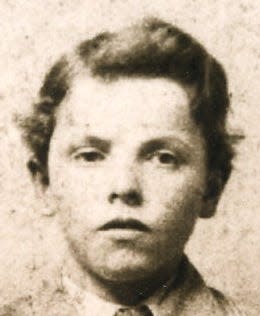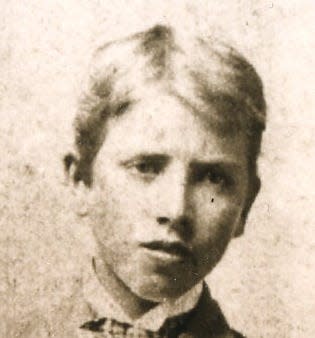Guest column: Did my great-uncles die in vain?
Is Iowa jettisoning safe work environments for those too young to protect themselves now a century after such accidents were proven all too common?
My late grandmother’s faded memory album contains obituaries for her two brothers who died far too young and unnecessarily prior to Iowa instituting child-labor laws over a century ago.
Newspaper records show that one of my great-uncles died instantly in 1906 while felling trees, cutting short the life of a "promising young man." Franklin Selby’s sudden death was a "great blow to his mother and near relatives, for he was of a pleasant disposition and deservedly popular with everyone," the newspaper reported. He was only 17.

Franklin's brother, John, was devastated, but he soon married and went to work on construction. In 1908, just after he turned 21, his judgment perhaps affected by his workplace requirements, he fell off a scaffolding upon which he was forced to navigate, pushing a wheelbarrow full of bricks. As might have been expected, the load must have shifted, the wheelbarrow pulling him down three stories, leaving behind a widow with a tiny baby boy "in destitute circumstances."
His leg was broken so badly that it had to be amputated above the knee. While doctors initially had "hopes of saving his life," a follow-up newspaper article the next day reported "unquestionably he had received fatal internal injuries."
Early-20th-century newspapers told of the fate of young men whose judgments were yet to fully mature. These men were older than the Iowa Legislature is now contemplating formally instituting child labor.

Their grandparents in Wales had not allowed their children to work in the coal mines as had many children as young as 5 years old. Instead, they brought their children to Iowa.
Six decades after the death of her two brothers, as she neared her own death, my grandmother still mourned their loss.
More:'Our kids are not for sale': Unions protest proposed changes to Iowa child labor law
Although Senate File 167 places some restrictions on the performance of work by children as young as 14, it allows for waivers that may introduce dangers which young people are ill-equipped to confront. Science tells us that the human brain is still developing skills in judgment into their middle 20s. Certainly, we can believe that younger individuals are less likely to succeed if they protest a work assignment which is deemed dangerous. So either way, young people must be protected from doing work that places them at risk.
Let’s not allow Iowa’s children to be injured, or killed, as were my grandmother’s two brothers whose judgment was still in development.
Mary Gilchrist of Iowa City is retired. She was director of public health laboratories in Massachusetts and Iowa.
This article originally appeared on Iowa City Press-Citizen: Opinion: Did my great-uncles die in dangerous work in vain?